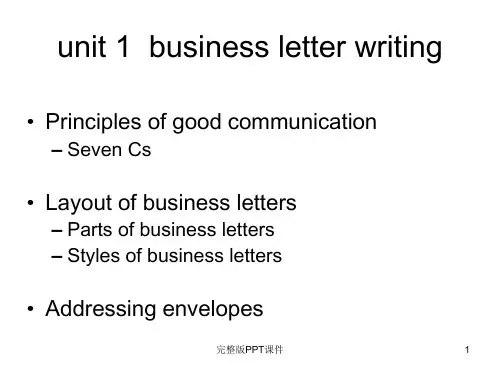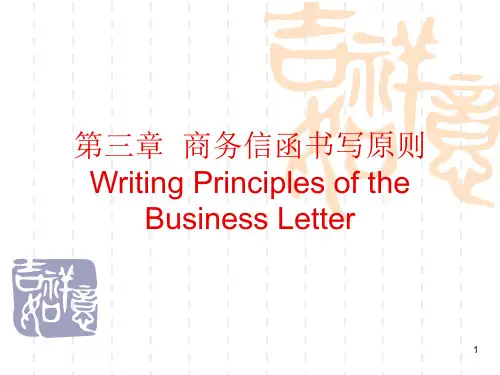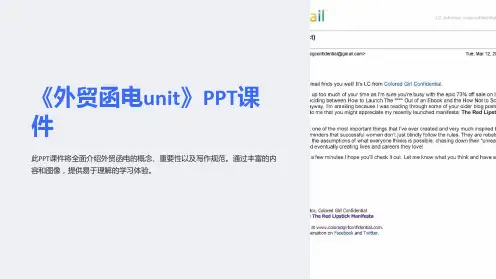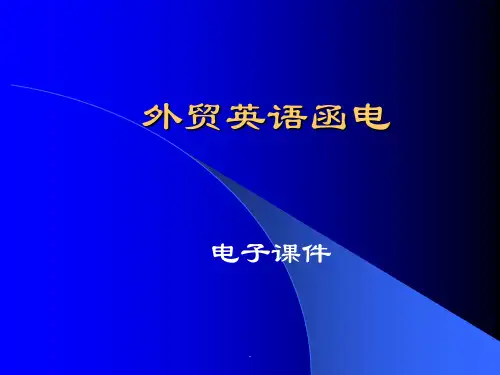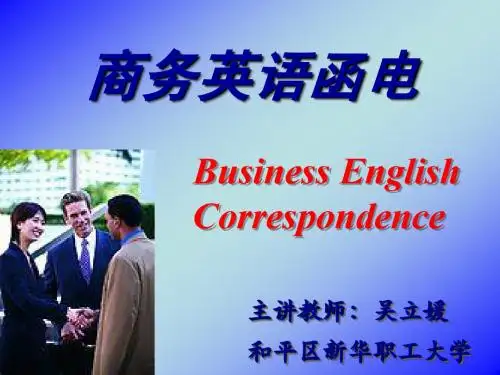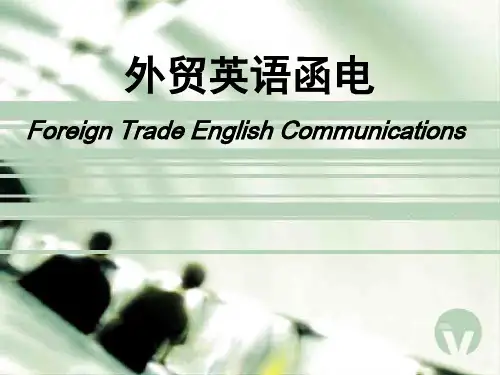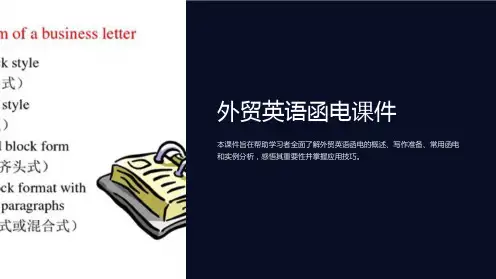1. 礼貌 (Courtesy) 绝不是表面的客套,它意味着在书信 中非常巧妙地表示出诚挚的友情、诚恳的感谢、真诚 的礼貌、体贴的理解和由衷的尊重。因此,要通过具 体的语言形式得体地表达,就需要掌握一定的语言技 巧和使用恰当的措辞。 • 2. 体贴 (Consideration) 是商务信函写作应遵循的重要原 则。“体贴”就是采取收信人的态度(You-Attitude),而 不是寄信人的态度(We-Attitude),即采取以第二人称 “您”为出发点,而不是以第一人称“我”或“我们” 为出发点的态度。 • 3. 完整 (Completeness) 的信件应该包含所有必要的信息, 才能达到预期的理想效果。否则,既有失礼貌,也会 令收信人对你公司产生不良的印象。要确保信件的全 面完整,列好提纲非常重要,同时建议写完信后要用 五个W,来检验,即:
• 6. Concreteness
• Business writing should be vivid, specific and definite rather than vague, general and abstract, especially when the writer is requiring a response, solving problems, making an offer or acceptance, etc.
consent—the significance of essential communicating skills, because all business activities rely on satisfactory exchange of information. Writing a business letter is very important in the business world. If a businessman is unable to write an effective business letter, it is very difficult to express his opinions, which may cause some problems in doing business. In this project, students will learn about some knowledge of how to write a business letter, that is, 7C principles, three basic formats of business letters, and twelve parts of a business letter.
